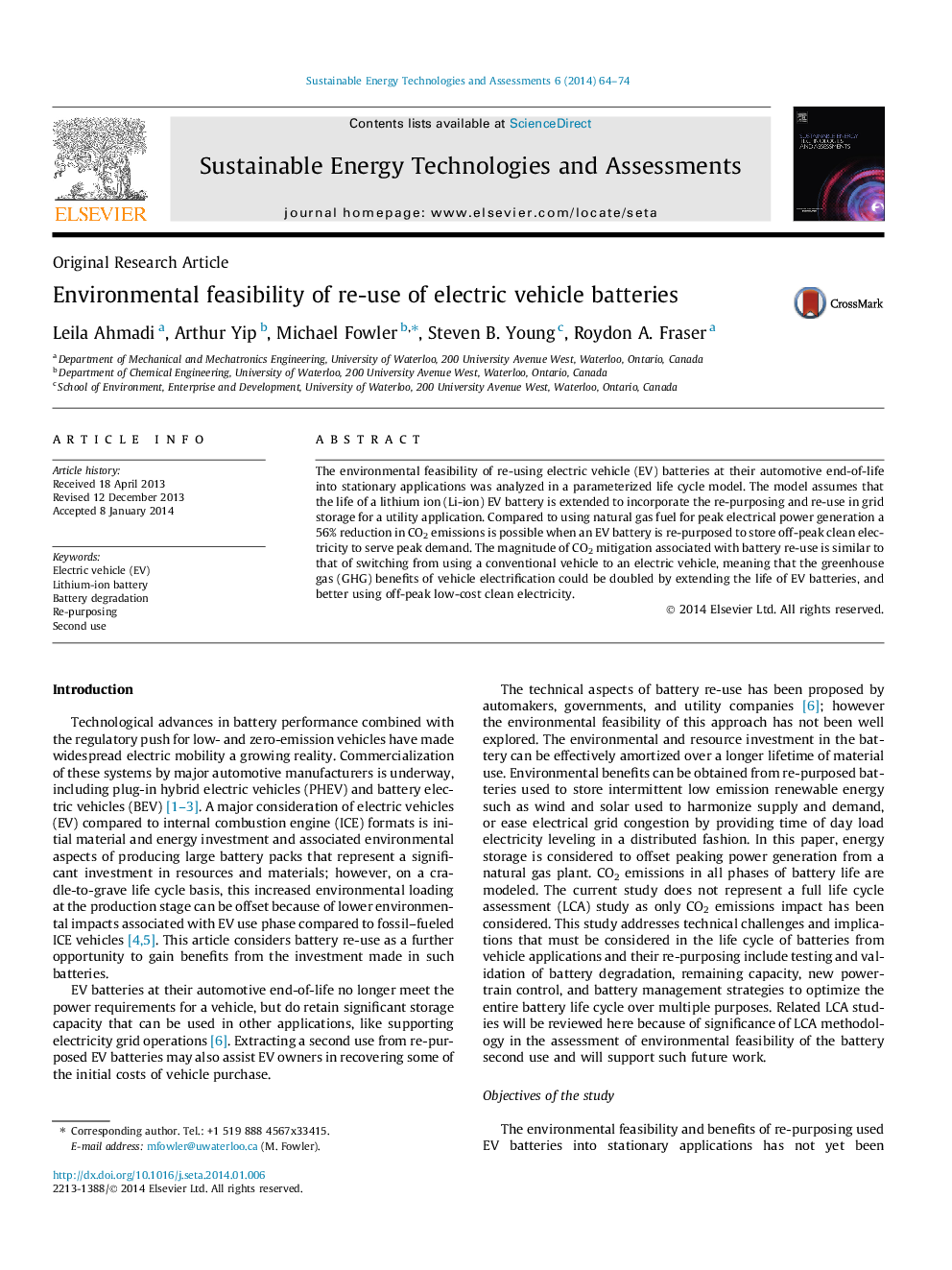| Article ID | Journal | Published Year | Pages | File Type |
|---|---|---|---|---|
| 1752710 | Sustainable Energy Technologies and Assessments | 2014 | 11 Pages |
Abstract
The environmental feasibility of re-using electric vehicle (EV) batteries at their automotive end-of-life into stationary applications was analyzed in a parameterized life cycle model. The model assumes that the life of a lithium ion (Li-ion) EV battery is extended to incorporate the re-purposing and re-use in grid storage for a utility application. Compared to using natural gas fuel for peak electrical power generation a 56% reduction in CO2 emissions is possible when an EV battery is re-purposed to store off-peak clean electricity to serve peak demand. The magnitude of CO2 mitigation associated with battery re-use is similar to that of switching from using a conventional vehicle to an electric vehicle, meaning that the greenhouse gas (GHG) benefits of vehicle electrification could be doubled by extending the life of EV batteries, and better using off-peak low-cost clean electricity.
Related Topics
Physical Sciences and Engineering
Energy
Energy Engineering and Power Technology
Authors
Leila Ahmadi, Arthur Yip, Michael Fowler, Steven B. Young, Roydon A. Fraser,
